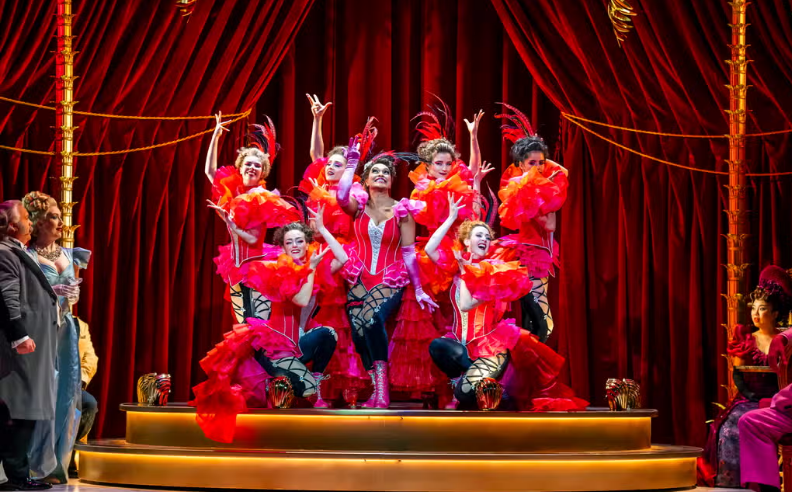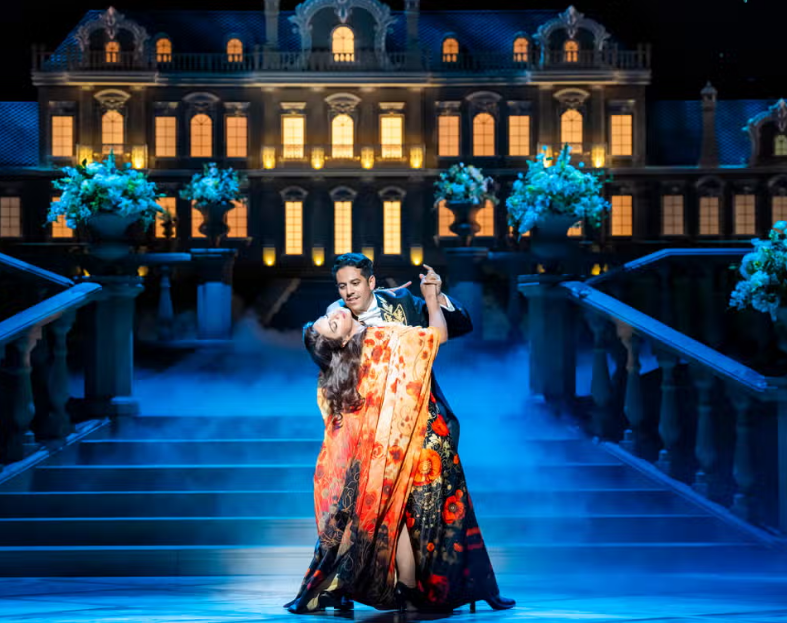
June 10th 2024
There are genuinely funny moments throughout, while it also captures the heartache that makes The Merry Widow the masterpiece it is

Given the straight line that can be drawn between 19th-century operetta and the Hollywood musical, it might seem an obvious choice to use the latter as a lens through which to refract the Belle Epoque of Franz Lehár’s The Merry Widow.
This is precisely what Cal McCrystal and his team have done in their new production for Glyndebourne and with great wit and style into the bargain.
The top hats, canes and glamorous frocks are all there, while Gary McCann’s felicitously tongue-in-cheek sets (exuberantly lit by Ben Cracknell) reference designers of the period such as Oliver Messel and Cecil Beaton.
There are genuinely funny moments throughout: many provided by Marcia Bellamy and Stephen Plaice’s scintillating libretto (happily both dialogue and sung text are delivered in English), to which McCrystal has added his own contributions.
It all begins with a warm-up act by the actor Tom Edden, playing the part of the subversive factotum, Njegus, who sets up such gags as the chorus soloist waving to her parents in the Circle over from New Zealand and the supposed failure of the veteran Thomas Allen to attend the choreography sessions.
In the role of Baron Zeta, Allen in fact matches his exemplary verbal delivery with impressively agile choreography of his own. The stage movement in general, for which Carrie-Anne Ingrouille takes the credit, includes a modern take on the high-kicking can-can Chez Maxim.

The nifty footwork of the eponymous widow herself is admirable for a different reason: Danielle de Niese, who brings vocal and physical glamour aplenty to the role, tore a ligament in her knee joint recently, requiring her to rehearse with her leg in a brace.
Otherwise the strongest vocal contribution comes from Germán Olvera, playing Count Danilo, her former lover whose lingering (and reciprocated) infatuation provides the emotional fulcrum of the work
The remainder of the cast, including the four soloists from the chorus, are all pleasurable to listen to, though the strength of the show lies in the cohesive company work (even on an occasionally accident-prone on the first night) rather than in stellar performances.

Leave a Reply